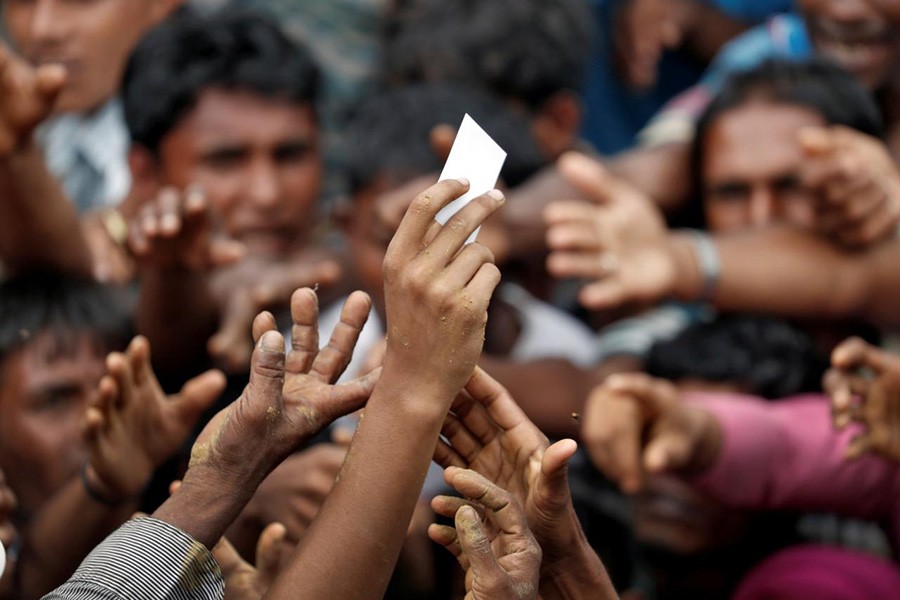National Board of Revenue (NBR) ruled out pleas of VAT (Value Added Tax) exemption for two projects, initiated in Cox's Bazar and Hatiya for the forcibly-displaced Rohingya population of Myanmar, official sources said.
The proposals for VAT waiver were made separately by Prime Minister's Office (PMO) and Ministry of Disaster Management and Relief.
VAT Wing of NBR recently expressed its inability to exempt the payable VAT on the projects by sending two separate letters to PMO and the ministry, they also said.
NBR, in the letters, suggested the entities concerned to keep separate allocation in the development project proposal (DPP) for payment of taxes and duties.
It said as per the instruction of the finance minister, all the government projects must have separate allocation for payment of taxes and VAT to the public exchequer.
VAT Wing earlier issued a circular in this regard to all the ministries and the Prime Minister Office (PMO).
A project office under PMO sought VAT exemption for Housing Project-3 at Bhashan Char of Hatiya under Noakhali, where it would build infrastructure to provide shelter to 0.1 million Rohingyas as well as to ensure security of the island.
In last October, the government allocated Tk 23.12 billion for the Bhashan Char housing project to construct houses for 100,000 Rohingyas. Bangladesh Navy will implement the project under PMO. It is scheduled to be completed by 2019.
Besides, Ministry of Disaster Management and Relief requested NBR to exempt VAT on a project for building 10,000 latrines in Cox's Bazar for Rohingyas with funding from UNICEF.
In August, thousands of new Rohingya refugees fled to Bangladesh by crossing the border following Myanmar military crackdown in Rakhine state. Since then, nearly 0.7 million Rohingyas have sought refuge in Cox's Bazar district.
Inter Sector Coordination Group (ISCG) data, released on March 2018, shows that Rohingya population in Bangladesh has increased to more than 0.9 million following their huge inflow from Myanmar.
According to an estimate of Centre for Policy Dialogue (CPD), the government would need to allocate US$ 1.1 billion in the upcoming budget for food, shelter, sanitation and other purposes of the Rohingya population.
A sector-wise need assessment of the Rohingyas shows that most of the expenditure will have to be spent for food security, WASH, shelter, site management and health, CPD mentioned in its State of Economy FY 2017-18.
CPD also suggested the government to chalk out a comprehensive plan for resource mobilisation in this regard, as repatriation process for the Rohingyas is quite uncertain.


